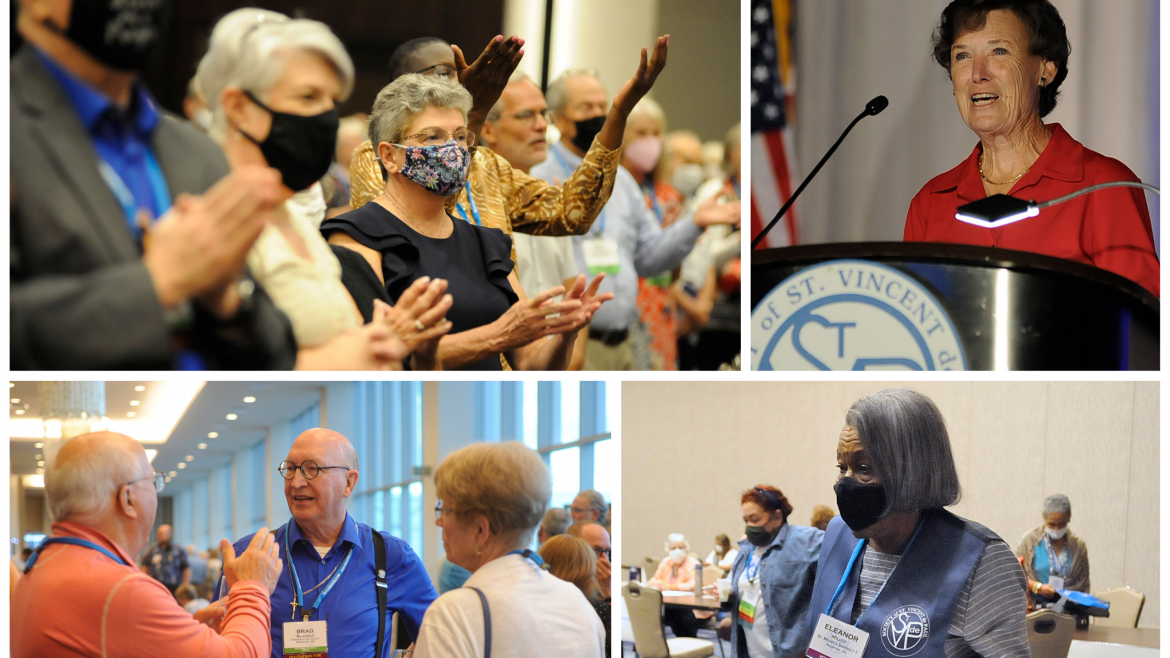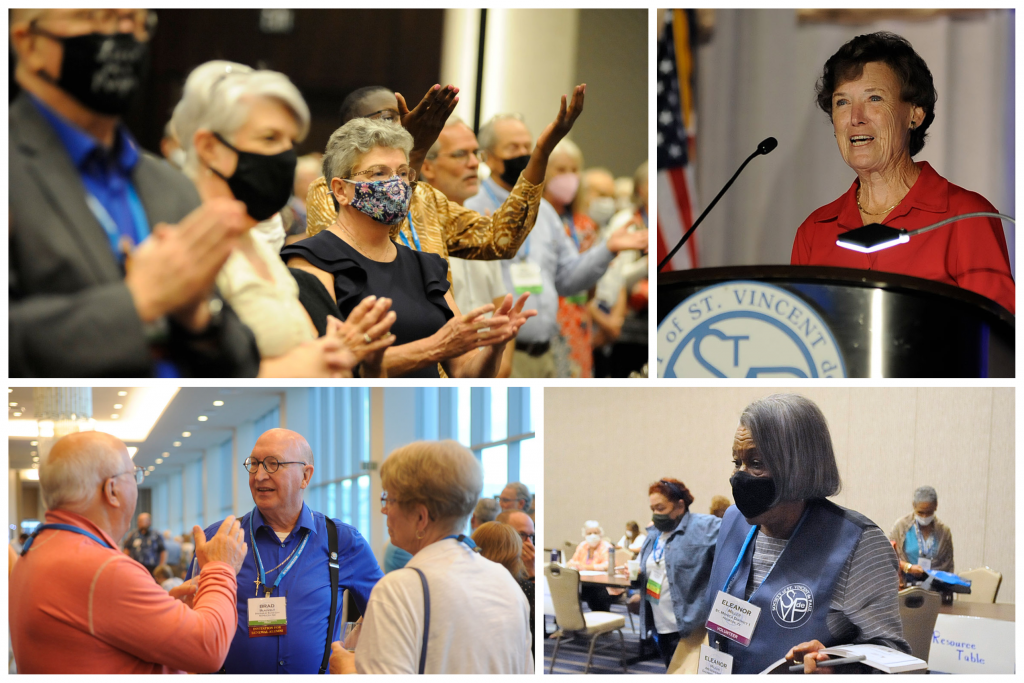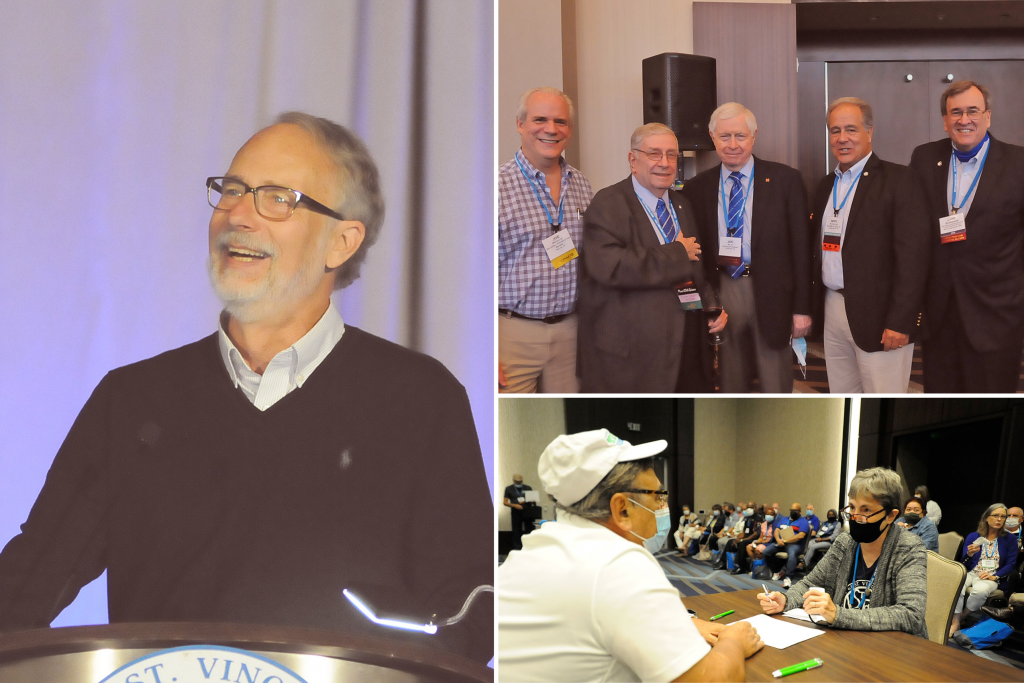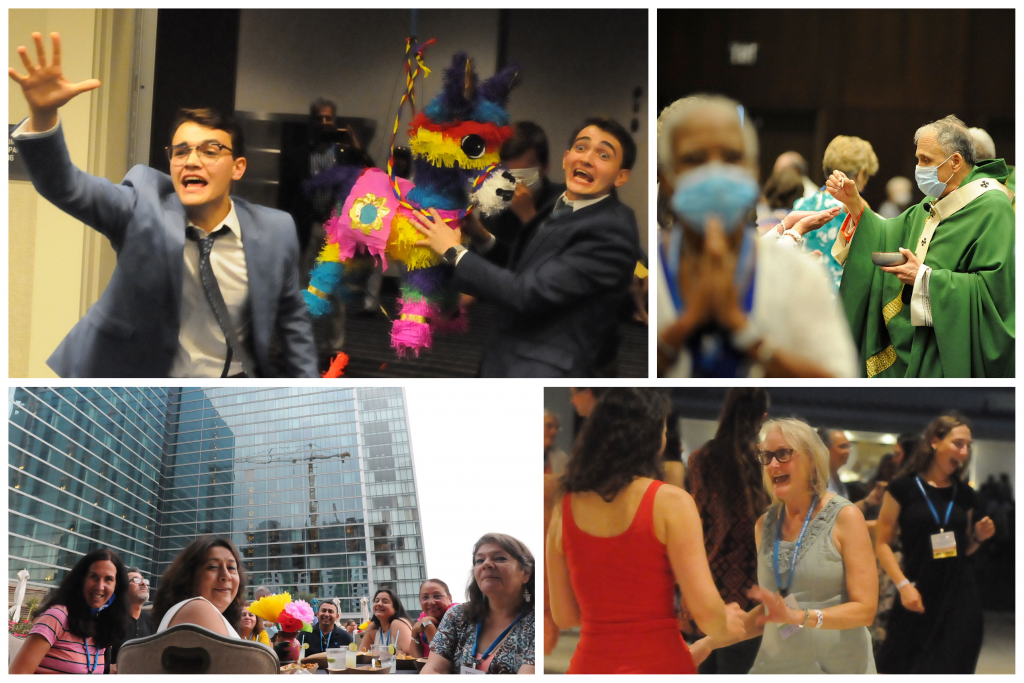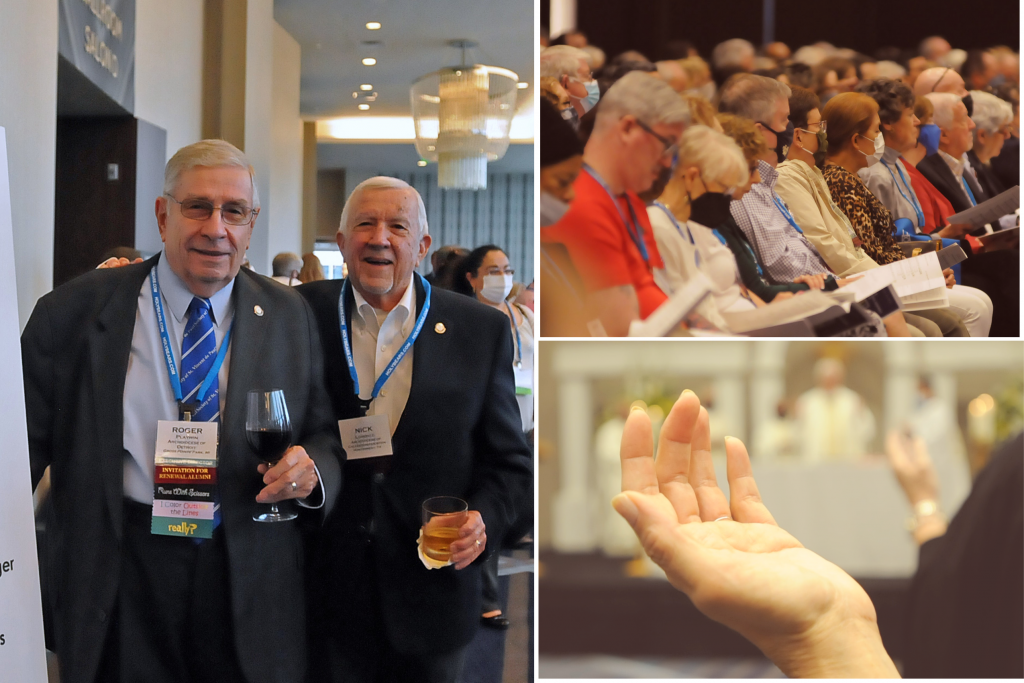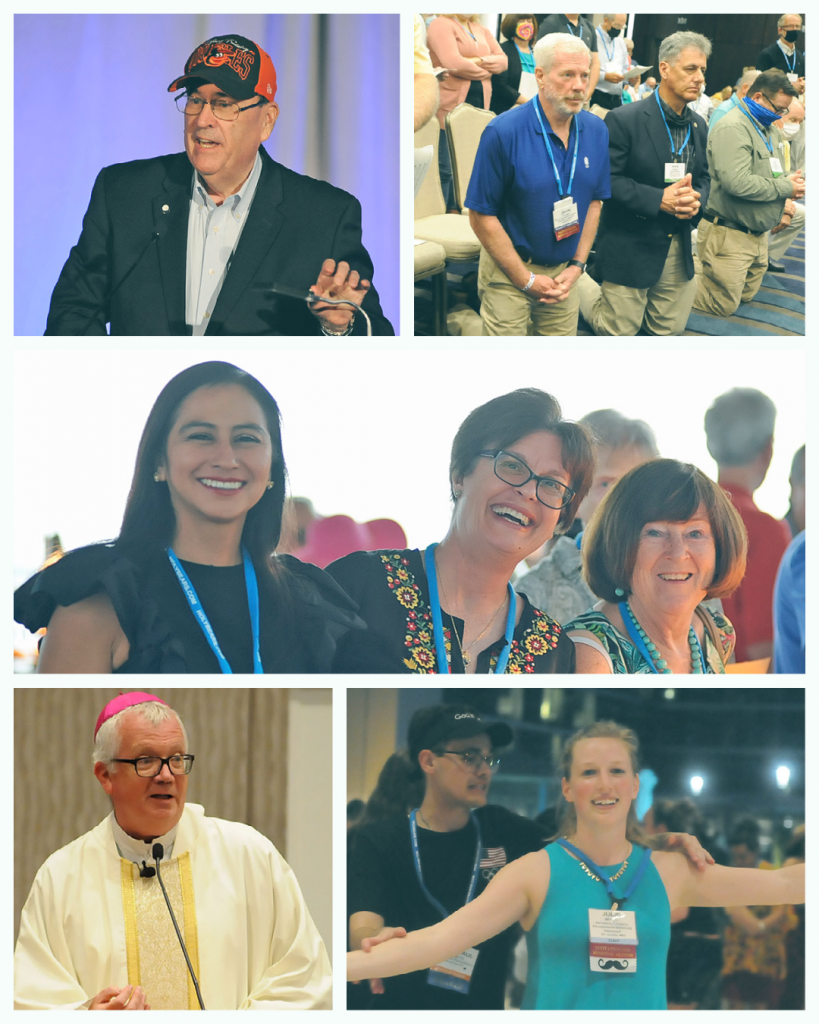It doesn’t take much time to feel utterly alone.
My wife was away over a weekend and I was home by myself. Even though I went to the grocery store and to Mass, worked out at the local YMCA, and bought some food at a drive-through, it was easy to say perhaps only 10 words the entire weekend. And that includes the “Amen” at communion!
In part this relative quiet was self-imposed. I’m blessed to have friends I could have visited, a Society food pantry where I could have volunteered, and a friendly neighborhood in which to converse with my neighbors. I chose after a very active couple of weeks to retreat instead for a few days and spend quality time with some books and televised sports. All told, I have blessings — and choices.
Some of the many people we serve do not have these blessings. We know from membership reporting that “elderly living alone” is our first or second type of family the Society serves in many of our Conferences. Others may have a disability or specific situation that causes them to be homebound. Some are parents who, while they have children around them, lack adult friends and family. It’s in all of these neighbors that we can see the difference between being alone and being lonely.
An extreme feeling of loneliness is an underlying condition that can also lead to depression, suicidal thoughts, and many dangerous behaviors such as addictions. If we could stop, or better yet, prevent such loneliness wouldn’t we all want to do so?
When a pair of Vincentians conduct a Home Visit or drop off a bag of groceries, we can easily measure how we provide for immediate needs. What is less evident is the value of simply being present. Often we have no idea of the life of the person we encounter. We may be the first person that neighbor has spoken to in person for a day, or a month. When we knock on the door, we are the face of Christ – friendly, welcoming of a conversation, helpful, and armed with a smile and, ultimately, hope.
Some members ask if the adaptations we all made over the pandemic period can be retained for the future, such as virtual Home Visits by phone or computer. These were necessary to help satisfy corporal needs of mercy such as rent and utilities assistance. We are blessed that we had the tools to adapt such that our neighbors could get the needed material help they sought. But what about their spiritual and emotional needs? Did we fulfill these even a little bit?
We may have taken for granted how much we mean to an isolated neighbor when we participate in person. Others who perform checkbook charity might feel satisfied that they helped in some way. Yet it is as nothing when compared to seeing the gratitude, friendship, and even joy when we make a personal encounter that, when allowed and appropriate, might include prayer and a handshake or hug. You can’t bottle that feeling and you sure can’t mail it in.
As we return post-pandemic to our Society traditions of in-person Home Visits and other personal encounters, let’s do so intentionally in a spirit of truly being a good neighbor even to those who are relatively unknown to us. That neighbor living alone, or otherwise emotionally very lonely, might never thank you for your appearing at their door. You won’t know that they feel more alive today because they spoke to another person in friendship. Some will know they exist simply because someone cared enough to visit them today.
In our Visits we bring more than tangible help; we bring hope and Christ’s love, and even get to feel a bit of it ourselves. It is said that half of success in life is just showing up. When we show up for someone else, we successfully take a few more steps toward our own holiness. Who will you visit tomorrow?
Yours in Christ,
Dave Barringer
CEO



